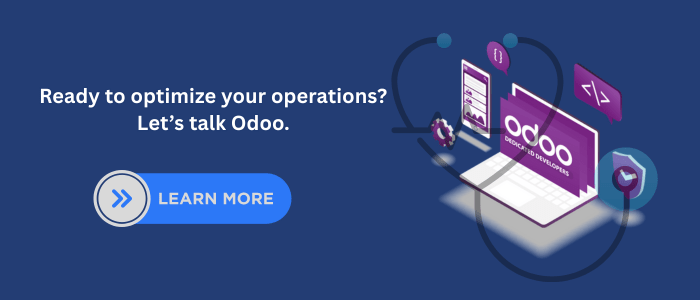Introduction
The modern healthcare industry faces an urgent need for operational transformation. From managing complex patient records to streamlining medical inventory and ensuring compliance with healthcare regulations, hospitals need efficient, integrated systems. Manual processes or outdated software can compromise both patient care and operational efficiency.
Enter Odoo for Hospital, a modular, open-source ERP platform tailored to meet the multifaceted needs of healthcare providers. With customizations offered by a qualified Odoo development company, hospitals can achieve end-to-end automation across departments, ultimately delivering faster, safer, and more personalized care.
1. What is Odoo for Hospital?
Odoo is a comprehensive business management suite that includes applications for CRM, accounting, HR, inventory, and project management. When customized for the healthcare sector, Odoo for Hospital becomes a full-fledged Hospital ERP system that integrates administrative, clinical, and operational workflows.
From appointment scheduling and patient billing to inventory management and staff payroll, Odoo centralizes all operations into a unified interface. The result? Real-time visibility, process efficiency, and reduced administrative burden—all critical in a high-pressure environment like healthcare.
2. Key Benefits of Odoo in Healthcare Management
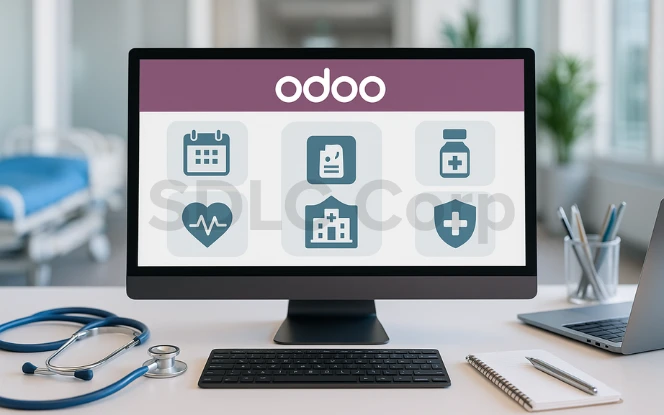
A. Integrated Patient Information Management
Odoo enables healthcare providers to maintain complete Electronic Medical Records (EMRs), linking diagnoses, prescriptions, test results, and billing into a single record.
Reduced paperwork and duplication
Real-time access to patient history
Better coordination among care teams
B. Optimized Appointment & Queue Management
With built-in scheduling tools, Odoo allows hospitals to manage doctor appointments, outpatient queues, and room allocations seamlessly.
Automated reminders
Reduced patient wait times
Efficient resource utilization
C. Robust Inventory and Pharmacy Control
Using Odoo healthcare modules, hospitals can track inventory for medical supplies, pharmaceuticals, and surgical tools with accuracy.
Expiry date alerts
Auto-replenishment rules
Vendor tracking and integration
D. Financial Transparency and Billing Automation
Odoo’s accounting and invoicing modules support healthcare-specific billing workflows:
Insurance claims integration
OPD/IPD billing
Real-time financial reporting
E. Compliance and Data Security
A customized Odoo system ensures adherence to HIPAA, GDPR, or region-specific health data regulations, while audit logs and access controls protect sensitive information.
3. Real-World Case Study
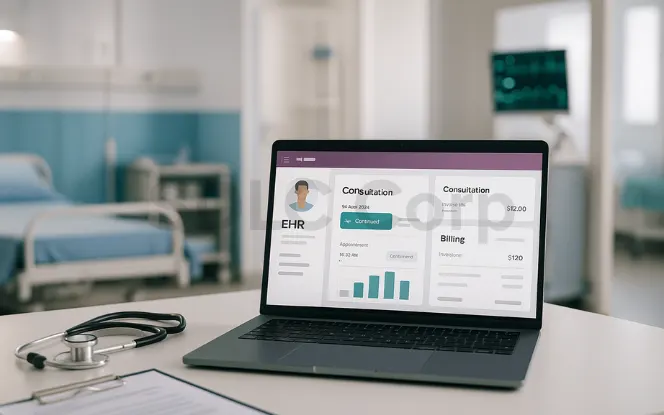
Here are a few clear examples of how oddo improves real-world education operations, framed in the context of an Odoo-like ERP system.
A. Apollo Hospitals: Digitizing Patient Engagement
Situation: A pioneer in Indian healthcare with over 70 hospitals, Apollo sought to enhance patient interaction and operational oversight across its facilities. Apollo adopted an integrated ERP system based on Odoo’s architecture to manage appointments, patient feedback, HR, and supply chain across departments.
Business Outcome:
30% faster patient registration and billing
50% reduction in inventory-related losses
Significant improvement in patient satisfaction score
B. Clinica Santa Sofia (Peru): ERP-Driven Excellence in Private Healthcare
Situation: A private hospital in Lima, Peru, known for cardiology and emergency services, struggled with manual operations and paper-based records. The hospital partnered with an experienced Odoo development company to deploy Odoo modules for patient records, appointment scheduling, inventory, and billing.
Business Outcome:
Digitized 95% of patient documentation
Streamlined inventory with a 40% drop in stock-outs
Enabled 24/7 access to records across departments
4. How an Odoo Development Company Supports Hospital Transformation
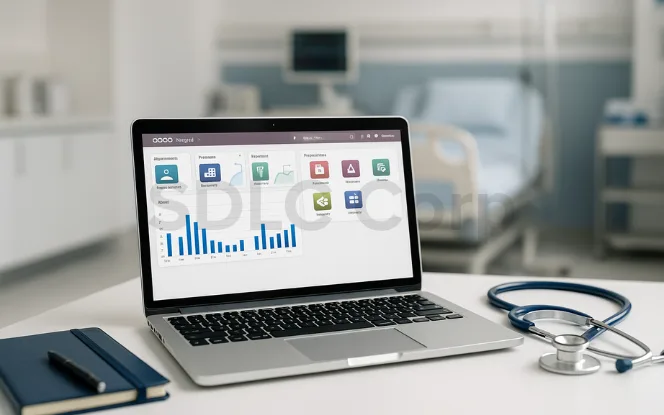
Implementing Odoo in a hospital setting isn’t just about installing software—it involves detailed planning, customization, and staff training. A specialized Odoo development company plays a critical role in:
Customizing healthcare modules based on hospital workflows
Developing integrations with third-party devices and systems (e.g., lab equipment, HL7)
Migrating legacy patient data
Providing post-deployment support and updates
Ensuring security and compliance features are properly configured
Such expertise ensures the ERP aligns perfectly with institutional goals and patient care standards.
5. Odoo ERP Implementation Process for Hospitals
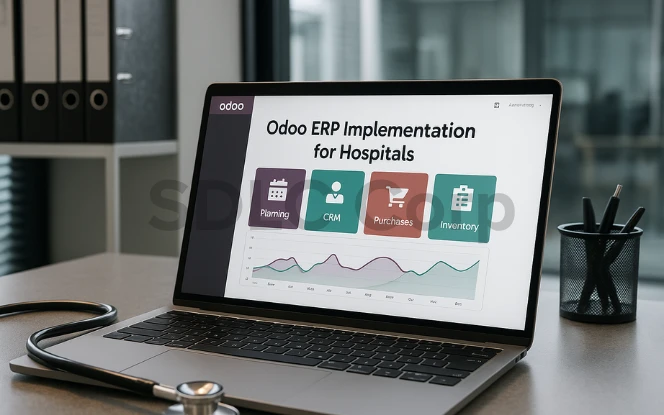
A systematic implementation process ensures long-term success. Here’s how a professional Odoo deployment unfolds in a healthcare setup:
A. Requirement Gathering
Stakeholder interviews and process analysis to identify pain points and expectations.
B. Customization & Configuration
Tailoring Odoo modules to fit hospital-specific workflows such as emergency admissions, insurance claims, and departmental hierarchy.
C. Training & Onboarding
Role-based training for medical and administrative teams to ensure confident use.
D. System Rollout
Live deployment with real-time data migration and integration testing.
E. Support & Maintenance
Ongoing bug fixes, system upgrades, compliance updates, and 24/7 technical support.
Also read: Odoo healthcare management
6. Data Privacy and Security in Odoo for Hospitals
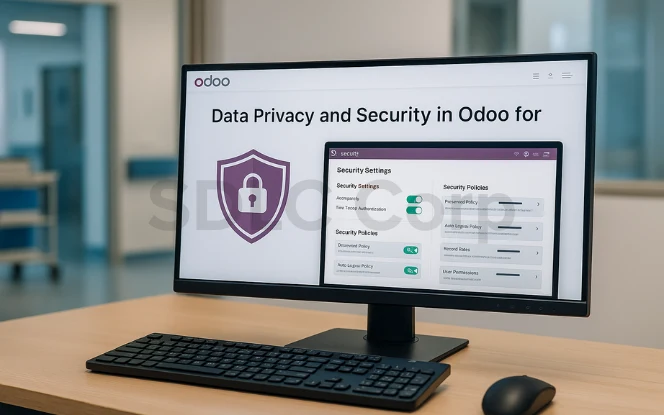
Odoo provides a secure environment for handling sensitive medical data. Key features include:
Role-Based Access: Only authorized staff can view or edit medical records.
Audit Trails: Every action is logged and traceable.
HIPAA/GDPR Compliance: Ready for global privacy standards.
Encryption: Secure data transmission and storage through industry-standard protocols.
This makes Odoo not just a smart solution—but a safe one.
7. Security in Modular ERP Setup
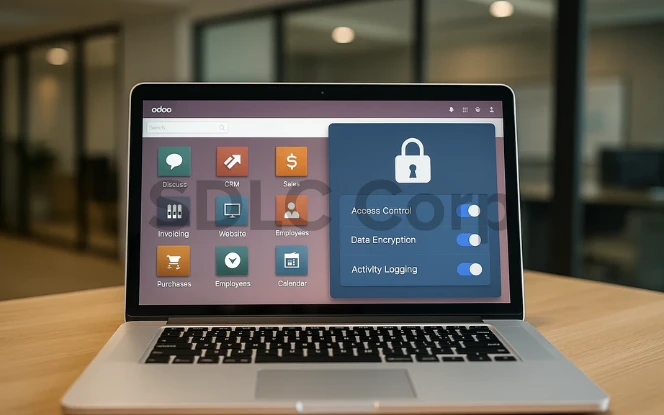
Odoo’s modular design allows hospitals to deploy only the components they need. However, this decentralized structure also introduces potential security vulnerabilities if not managed properly.
Security Best Practices Include:
Isolated Access Controls: Each module (e.g., billing, patient records, pharmacy) must have granular access restrictions to prevent unauthorized cross-module data exposure.
User Role Hierarchies: Define clear hierarchies for doctors, nurses, admin staff, and lab technicians with separate permissions.
Secure API Integrations: Ensure all third-party systems (like lab devices or insurance portals) use encrypted and authenticated APIs.
Regular Audits: Implement audit logs and system health checks to detect unauthorized access or anomalies.
By working with a specialized Odoo development company, hospitals can ensure that security protocols are tightly integrated into each ERP module from the outset.
8. Data Migration Challenges
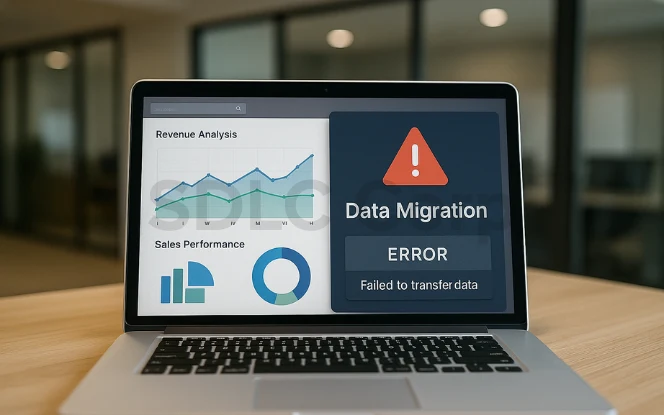
Migrating legacy data—often stored in outdated software or manual systems—is one of the most delicate phases of ERP implementation.
Challenges Hospitals May Face:
Inconsistent Data Formats: Patient records may exist in PDFs, spreadsheets, or paper formats, making standardization complex.
Data Cleansing: Duplicates, missing fields, and inconsistent coding (e.g., for diseases or medication) require extensive validation.
Downtime Risk: Improper migration planning could disrupt critical services during go-live.
Best Practices to Overcome These Issues:
Perform a data audit before migration
Develop ETL (Extract, Transform, Load) pipelines
Run sandbox tests to ensure data accuracy
Schedule phased rollouts to minimize service disruption
An experienced Odoo partner can handle data migration securely and systematically, ensuring zero data loss and high system integrity.
9. Future-Proofing Healthcare with Odoo
As healthcare becomes more data-driven, hospitals need systems that adapt to evolving trends such as:
Telemedicine Integration
AI-powered diagnostics
Patient mobile apps for self-scheduling and report access
Predictive analytics for disease tracking
Odoo’s modular and open-source nature makes it highly adaptable for these emerging needs. Partnering with an Odoo development company ensures that your ERP evolves along with your institution.
Conclusion
The healthcare sector is at a pivotal point where digital transformation is not just an advantage—it’s a necessity. With its flexible architecture, robust features, and community support, Odoo for Hospital stands as one of the most effective ERP platforms for the industry.
By partnering with a trusted Odoo development company, for Odoo development services, hospitals can implement tailored ERP solutions that improve efficiency, strengthen compliance, and—most importantly—enhance patient care.
FAQ's
Can Odoo for hospital be integrated with wearable health devices or IoT monitors?
Yes, with proper customization, Odoo can interface with health-monitoring IoT devices, enabling real-time vitals tracking and alert generation.
How does Odoo support emergency room (ER) or critical care workflows in hospitals?
Custom Odoo modules can be developed to support rapid triage, ER prioritization, and real-time alert systems for critical care situations.
Is it possible to use Odoo in a small clinic or outpatient center?
Absolutely. Odoo is modular and scalable, making it equally effective for small outpatient clinics as it is for large multi-specialty hospitals.
Does Odoo for hospital support multilingual staff and patient portals?
Yes, Odoo supports multiple languages for both front-end (patient portals) and backend (staff dashboards), which is crucial for hospitals in diverse regions.
Can Odoo for hospital generate analytics for government health reporting or KPIs?
Yes, Odoo can be configured to generate customized reports and export them in formats required by health departments or accreditation boards.

